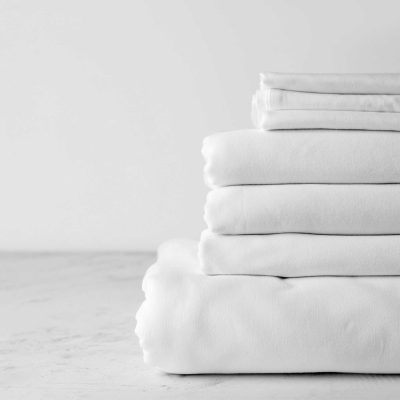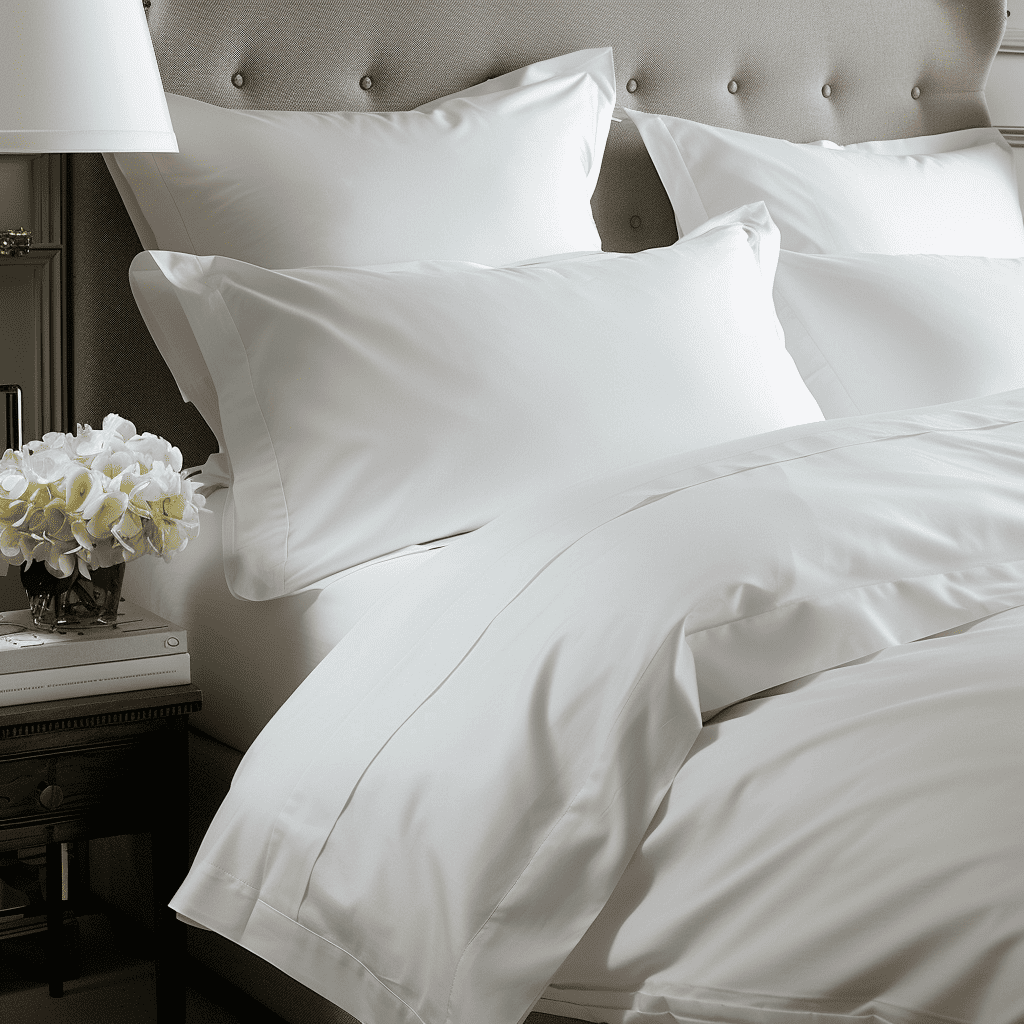Sourced from the leaves of the flax plant, linen provides a natural substitute for synthetic winter bedding, which often lacks breathability and is susceptible to overheating. For those seeking a naturally insulating alternative to flannel, linen sheets offer unique characteristics, including natural fibers, a distinctive feel, and superior temperature control.
Our Recommendation 🇺🇸
This sheet set, comprised of 4 pieces, is crafted from 100% genuine French linen, one of the toughest natural fibers out there. This linen is organically produced and harvested in an eco-friendly manner, free from chemicals and additives. It boasts an AZO-free certification, untouched by bleach or dyes, making it ideal for those with sensitive skin. Beyond its softness and breathability, this French linen set also excels in moisture management, helping to balance your body’s temperature—keeping you cool during summer and cozy in winter. An added advantage is its self-cleaning property, meaning less frequent washing. Pre-shrunk and stonewashed, it’s sturdier and more compact than cotton yet remains incredibly soft to the touch.
Considering Linen Sheets: A Few Common Queries
Wondering if linen is the right pick for you? The benefits of choosing the world’s oldest bedding fiber are numerous and include unparalleled durability, thermal regulation, and airy comfort. Let’s delve into the major attributes that influenced our selection process by addressing some frequently asked questions about this natural and eco-friendly material.
What Makes Linen Sheets Stand Apart?
Linen sheets, known as the oldest fabric in human history, are far from being a recent trend. While cotton and other bedding options have long ruled the market, pure linen is recognized as a high-end option due to its excellent breathability, sturdy durability, and moisture-absorbing abilities. These unique traits allow linen to outperform other fibers in thermal regulation, making it well-suited for use throughout the year as it smoothly adjusts to hot summer nights and cold winter temperatures.
What Are the Advantages of Owning Linen Sheets?
Above all, genuine linen sheets are seen as a worthwhile investment, often handed down as family treasures due to their lasting durability that spans several decades. Made from robust fibers and built-in insulation, linen sheets surpass other options in terms of breathability, stain resistance, and typically do not produce static. Being a natural fiber obtained straight from the flax plant, linen is a top choice for people with allergies or sensitive skin. Moreover, for those who tend to overheat during sleep, linen is an ideal option as its fibers can absorb up to twenty percent of their weight in moisture.
Are Linen Sheets Suitable for Everyone?
Considering linen’s unique attributes, it’s reasonable to think that not everyone might prefer this fabric. While those who love linen appreciate its distinct feel, newcomers might need some time to adjust to its unique texture. For those interested in trying linen, we suggest selecting prewashed or stonewashed versions, which typically have a softer touch than untreated linen, known for its signature grainy texture.
Is it Easy to Maintain Linen?
While it’s crucial to steer clear of harsh chemicals and detergents, caring for linen sheets is usually simple, with machine wash and tumble dry on low heat safe for most variants. Similar to cotton, linen may wrinkle easily, so it’s essential to promptly remove the sheets from the dryer and iron them with a warm—not hot—iron, if necessary. Due to linen’s sturdy fibers and superior breathability, the fabric typically needs fewer washes than cotton and other alternatives.






